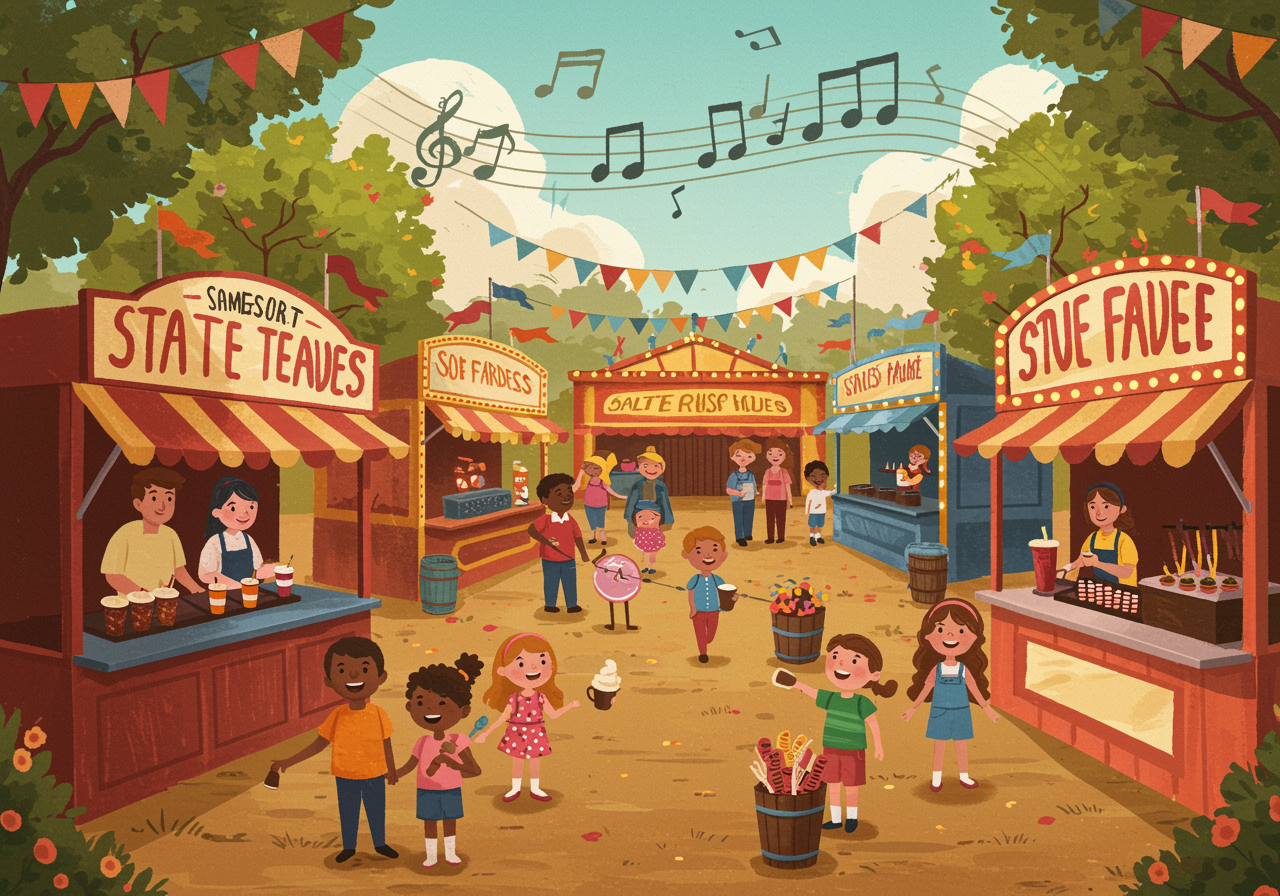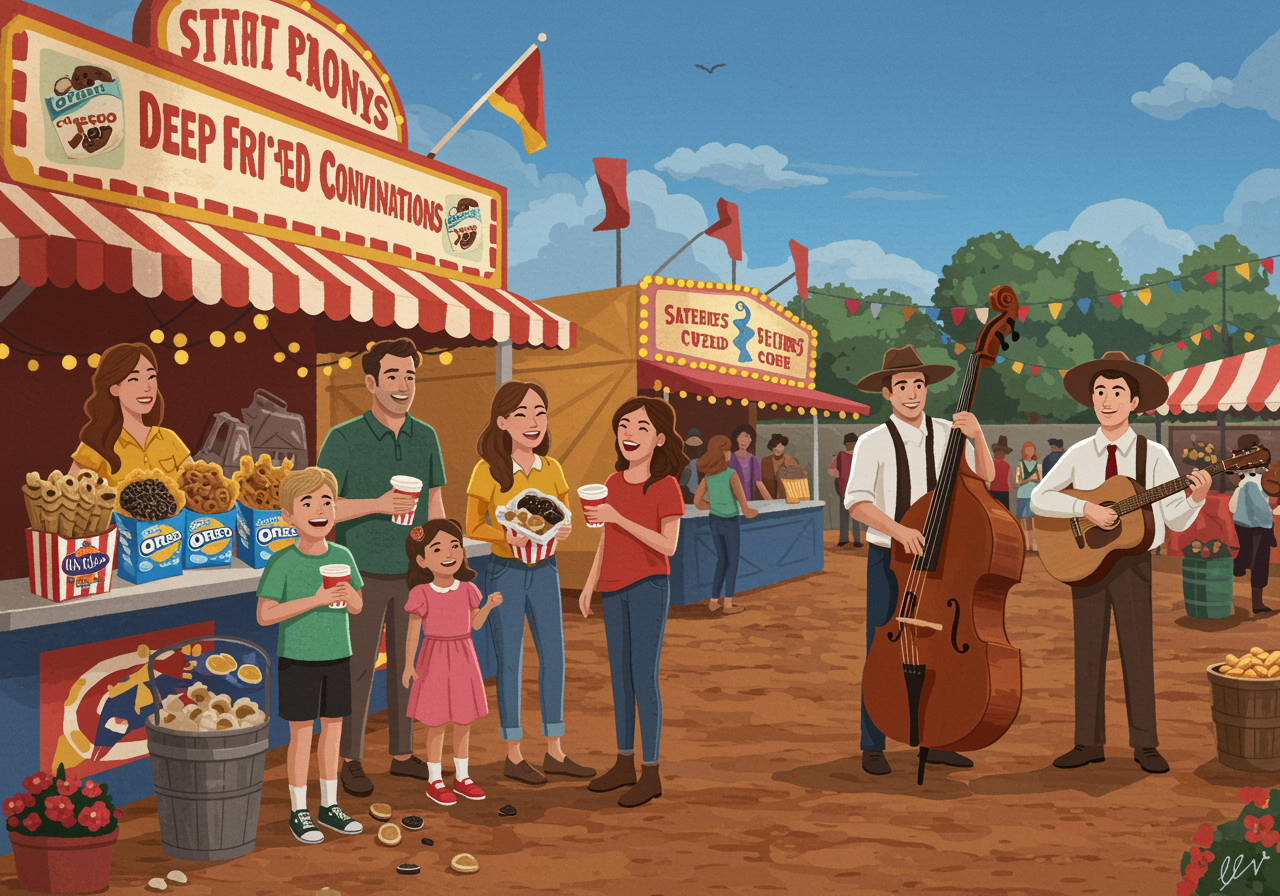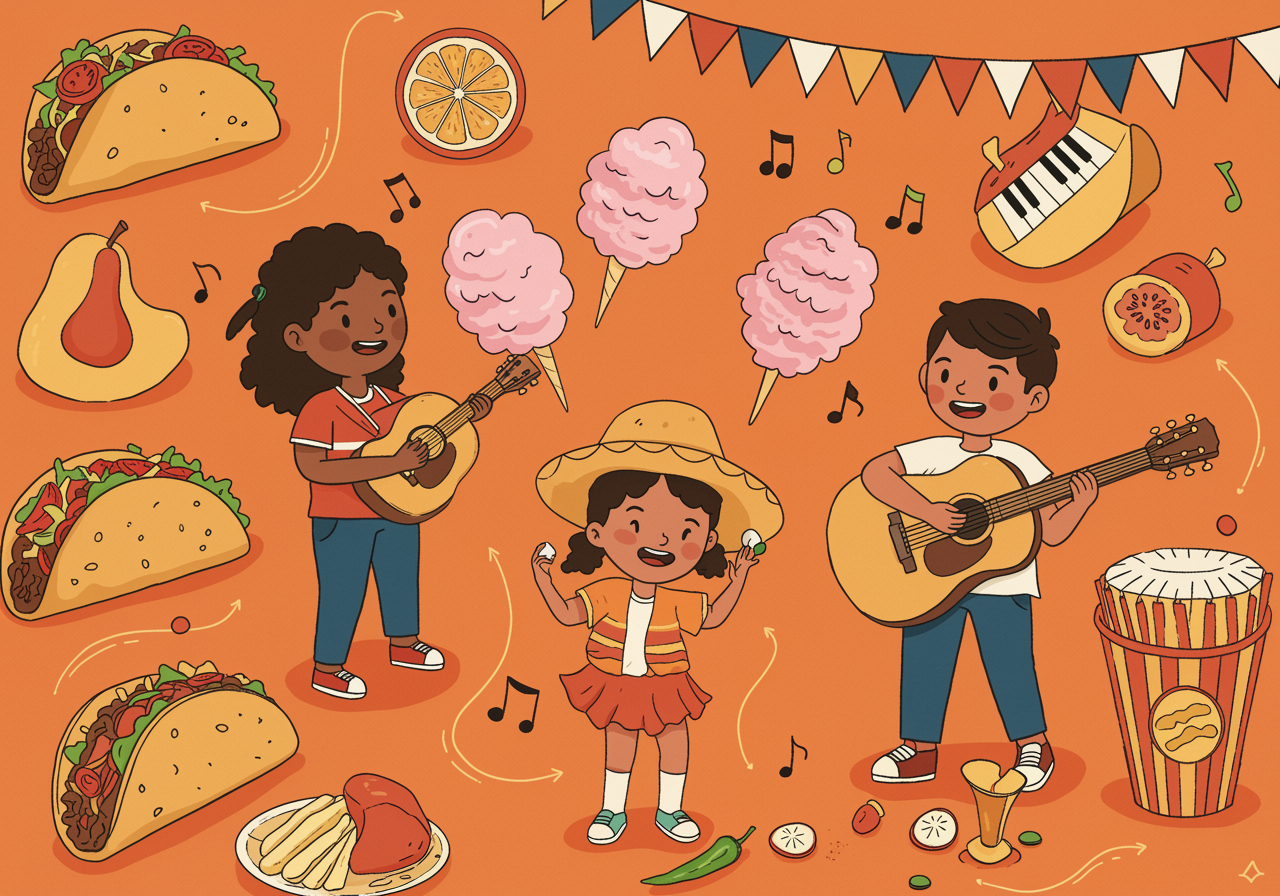The Magic Mix: How State Fairs Turn Strangers into Friends
Discover the surprising science behind why funnel cake and fiddle music create instant communities
Ever wonder why you feel so connected to complete strangers when you’re sharing cotton candy and listening to live music at a fair?
Overview
Think about the last time you were at a state fair, food festival, or outdoor concert. Did you notice how easy it was to chat with strangers while waiting in line for funnel cake? Or how everyone seemed to sway together when the band played your favorite song? There's actual science behind why music and food at events create these magical moments of connection. When we share sensory experiences like tasting amazing food or hearing live music, our brains release chemicals that make us feel closer to the people around us. Understanding this helps us appreciate how festivals and fairs aren't just fun – they're powerful community builders that bring together people who might never talk otherwise.

Understand in 30 Seconds
Get up to speed quickly
- Shared Senses = Instant Bonds: When people experience the same tastes, smells, and sounds together, their brains sync up and create feelings of connection and trust.
- Food is a Universal Language: Sharing meals or trying new foods together breaks down social barriers because eating is one of our most basic human experiences.
- Music Creates Emotional Highways: Live music makes our hearts beat together and releases feel-good chemicals that make us more open to connecting with others.
- Festivals Build Temporary Cities: Events like state fairs create mini-communities where normal social rules relax and people feel safer approaching strangers.
Real Life Scenario
Situations you can relate to
Imagine you're at your state fair with your family. You're in line for deep-fried Oreos (because why not?), and the person behind you starts laughing at the ridiculous food combinations. Suddenly you're both joking about pickle pizza and sharing stories about the weirdest fair food you've tried. Meanwhile, a bluegrass band starts playing nearby, and without thinking, you and this stranger start tapping your feet to the same beat. What just happened? Your brains basically said, 'Hey, we like the same weird food and music – we must be friends!' This is your brain's ancient wiring kicking in. For thousands of years, sharing food and music meant you were part of the same tribe, so your brain still treats these experiences as friendship signals. Pretty cool how a corn dog can break the ice, right?

Role Play
Spark a conversation with “what if” scenarios
What if you could design the perfect community-building fair booth?
- Role play: Take turns describing your ideal booth that combines food and music. Would it be a taco stand with a mariachi band? A pizza station with karaoke? Discuss why certain combinations might bring different groups together.
What if you had to bring together two groups who disagreed about something?
- Role play: Role-play being event planners who need to use food and music to help feuding neighbors get along. What foods would you choose? What music? Act out how the event might unfold.
What if you were a food scientist studying why people connect over meals?
- Role play: Pretend to conduct 'experiments' by sharing different snacks while listening to various music styles. Observe and discuss how different combinations make you feel about each other.
FAQs
Frequently asked questions people want to know
Why does music make people feel closer to each other?
Music literally syncs our brainwaves and heartbeats. When we hear rhythm together, our bodies start moving in harmony, which triggers the release of oxytocin – the same hormone that bonds parents and babies.
Is there science behind why sharing food builds friendships?
Yes! Eating together activates the vagus nerve, which controls our 'rest and digest' response. This makes us feel calmer and more trusting, plus sharing food has meant survival and safety for humans throughout history.
Why do people act differently at festivals than in everyday life?
Festivals create what scientists call 'collective effervescence' – a shared emotional high that temporarily breaks down social barriers. People feel more open and connected because everyone is there for the same fun experience.
Examples in the Wild
See how this works day to day
- Research from Oxford University found that people who eat together are more likely to cooperate and trust each other, even if they're strangers. (Oxford University Psychology Department)
- Studies show that when crowds move to music together at concerts, they report feeling more connected to the people around them for hours afterward. (Stanford Social Psychology Lab)
- The Austin City Limits Music Festival reported that 78% of attendees made new friendships, often while sharing food recommendations between sets. (Austin City Limits Audience Survey 2023)
- Food trucks at music festivals have become social hubs where different cultural communities naturally mix and share their traditions with others. (National Food Truck Association Cultural Impact Study)
In Summary
What you should know before you start
- Music and food activate our brain's social bonding systems, making us feel closer to people around us
- Festivals create temporary communities where social barriers naturally lower and connections form easier
- Sharing sensory experiences like taste and sound literally syncs our brains with others
- These connections often surprise us because they happen so naturally and quickly at events
Pro-tip for Parents
You got this!
If your teen seems hesitant to talk about social connections, try starting the conversation while you're actually sharing food or listening to music together. The same brain chemistry that works at fairs works at your dinner table too! Ask them about times they've felt instantly connected to someone at a school event or concert. Sometimes kids find it easier to open up about social experiences when they're in the middle of their own shared sensory moment with you.

Keep an Eye Out For
Find these examples in everyday life
- Local food festivals, farmers markets, or outdoor concerts where you can observe people naturally connecting
- School events like talent shows or food drives where different social groups come together
- News stories about how communities use food and music to heal after difficult times or celebrate diversity
Explore Beyond
Look up these related research topics
- How different cultures use food and music in their celebrations and what that teaches us about their values
- The psychology of why certain songs or foods trigger powerful memories and emotions
- How social media and virtual events compare to in-person gatherings for building real connections